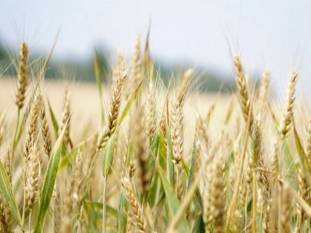MUMBAI, 12 October 2023: Amidst the challenges posed by climate change, one innovation in agriculture stands as a beacon of hope in India: Climate-Resilient Wheat. Developed through tireless research efforts, this remarkable crop has the potential to transform Indian agriculture, ensuring food security for millions and mitigating the impact of an unpredictable climate.
Urgency of climate-resilient wheat
India's agricultural landscape is as diverse as its culture, with wheat being one of the country's staple crops. However, in recent years, the changing climate has cast a shadow over wheat production. Erratic weather patterns, prolonged droughts, and increasing temperatures have threatened the livelihoods of farmers and food security for millions.
In response to these challenges, scientists in India have developed climate-resilient wheat varieties that can withstand the changing climate while maintaining high yields. In this article, we explore the journey of climate-resilient wheat in India, its benefits, and its potential to bolster food security.
Birth of climate-resilient wheat
The story of climate-resilient wheat in India is closely tied to the Indian Council of Agricultural Research (ICAR) and the efforts of dedicated scientists. Dr. Sanjaya Rajaram, an acclaimed wheat breeder, played a pivotal role in developing wheat varieties that could thrive in the face of climate adversity.
-
Drought Tolerance: One of the primary challenges faced by Indian wheat farmers is drought. Climate-resilient wheat varieties are bred to have deep root systems, allowing them to access water from deeper soil layers during dry spells.
-
Heat Resilience: Rising temperatures are another threat to wheat crops. These new wheat varieties are bred to withstand high temperatures, ensuring that they can continue to grow and produce grain even during heatwaves.
-
Pest Resistance: The changing climate has led to the spread of new pests and diseases. Climate-resilient wheat varieties incorporate resistance to these emerging threats, reducing the need for chemical pesticides.
-
Reduced Water Requirements: In water-scarce regions, these wheat varieties are a boon. They are designed to use water more efficiently, reducing the overall water requirement for cultivation.
Benefits of climate-resilient wheat
The adoption of climate-resilient wheat in India offers a myriad of benefits:
-
Enhanced Food Security: Climate-resilient wheat ensures a stable and increased food supply, especially in regions prone to climate-related disruptions. It plays a vital role in reducing food scarcity.
-
Higher Yields: These wheat varieties often exhibit higher yields compared to traditional varieties, contributing to increased farmer income and overall agricultural productivity.
-
Reduced Environmental Impact: The reduced need for chemical pesticides and efficient water use contribute to a more sustainable and environmentally friendly agriculture.
-
Improved Livelihoods: Farmers who have embraced climate-resilient wheat report more secure livelihoods and reduced vulnerability to climate-related losses.
-
Crop Diversification: By offering a crop that can withstand climate challenges, farmers can diversify their crops, reducing the risk associated with relying solely on traditional wheat varieties.
Success stories
The impact of climate-resilient wheat in India can be seen in various regions:
-
Heat-Tolerant Wheat in Haryana: In the state of Haryana, where scorching temperatures are a common occurrence, the adoption of heat-tolerant wheat varieties has significantly increased wheat production.
-
Drought-Resistant Wheat in Maharashtra: Maharashtra, known for its variable rainfall, has witnessed increased wheat yields due to the use of drought-resistant wheat varieties. These varieties have allowed farmers to cope with water scarcity effectively.
-
Pest-Resistant Wheat in Punjab: In Punjab, where the rice-wheat cropping system is prevalent, climate-resilient wheat has reduced the need for chemical pesticides, leading to healthier ecosystems and reduced environmental pollution.
Challenges and future prospects
While climate-resilient wheat offers numerous advantages, challenges remain. The adoption of new varieties by farmers requires adequate training and resources. Furthermore, addressing concerns related to genetically modified crops and ensuring the equitable distribution of these innovations are critical.
In the future, continued research and development efforts are essential to create even more resilient wheat varieties. Collaboration between scientists, policymakers, and farmers will be pivotal in expanding the adoption of climate-resilient wheat across India.
Conclusion
Climate-resilient wheat is more than just a crop; it represents a lifeline for India's agricultural sector. It embodies the resilience and innovation of Indian scientists who have taken the lead in addressing the formidable challenges posed by climate change.
With the adoption of climate-resilient wheat, India is not only securing its food supply but also offering a blueprint for agricultural sustainability in a changing world. As we look ahead, it is crucial to support the research and development of similar climate-resilient crops to ensure a food-secure future for all.
The tale of climate-resilient wheat in India is a testament to human ingenuity, determination, and the power of science to provide solutions in the face of adversity. It is a story of hope, progress, and a brighter future for Indian agriculture.
By Jagdish Kumar, Editor, AgriTimes.co.in
Image credit: devdiscourse.com




















